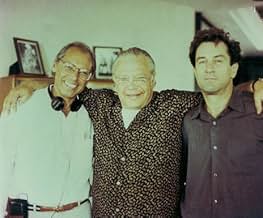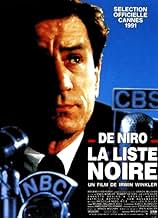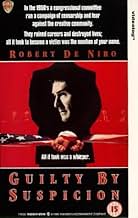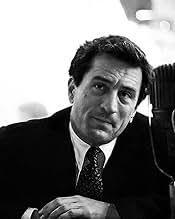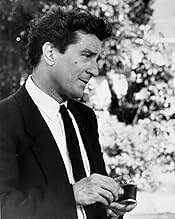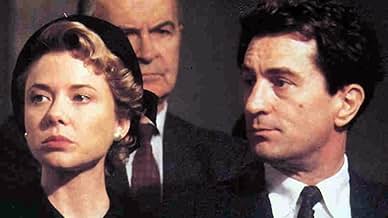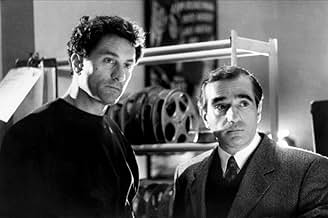It's almost impossible to write any kind of objective film about the blacklist, the wounds of it run deep in show business. Guilty By Suspicion has no pretense to objectivity, neither does that John Wayne epic Big Jim McLain which was favorable to the House Un American Activities Committee.
Those who gave testimony at HUAC did so for a variety of motives. Some like Adolphe Menjou wanted the blacklist for everyone to the left of Herbert Hoover. Some like Robert Taylor felt they were doing a patriotic service. Some under the threat of not being able to work as artists in their chosen profession named names before HUAC. A very select few said stick it in your ear.
If there any guilty parties it's not the artists whatever their political persuasion. It was the studio bosses and one of them, Darryl F. Zanuck is played here by Ben Piazza, who gave in without exception to HUAC and cooperated in the blacklist, who pitted the people of various political persuasions against each other. Sad to say that's not really demonstrated here in Guilty By Suspicion.
The members of HUAC were 95% on the political right of both parties. The Democrats were mostly southerners and the Republicans were on the right in their party. The liberals of either party had more constructive ways to spend their time in Congess.
Guilty By Suspicion tells the story of Robert DeNiro as a fictional film director who gets blacklisted because of secret hearing testimony given by Chris Cooper. His struggle to find work turns positively Kafkaesque until he agrees to go before the committee.
DeNiro strikes all the right notes in his performance and is aided and abetted by the performance of Annette Bening as his estranged wife. Acting honors however go to Patricia Wettig who plays a distraught blacklisted actress with a drinking problem to start with.
Guilty By Suspicion is not the ultimate telling of the blacklist's story, but it's still pretty good and does get a feel for the times the story is set in.


